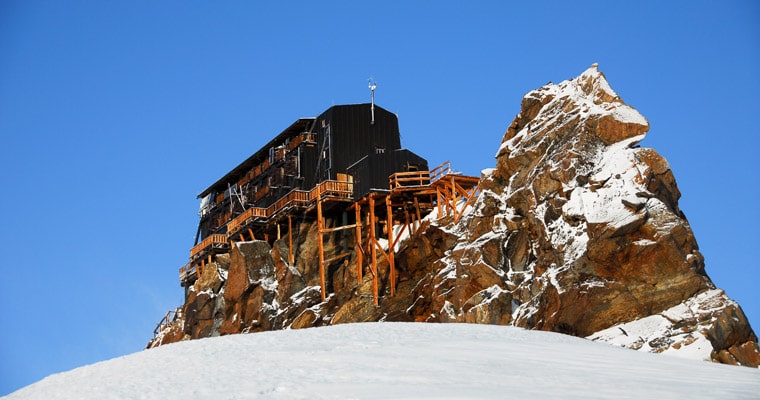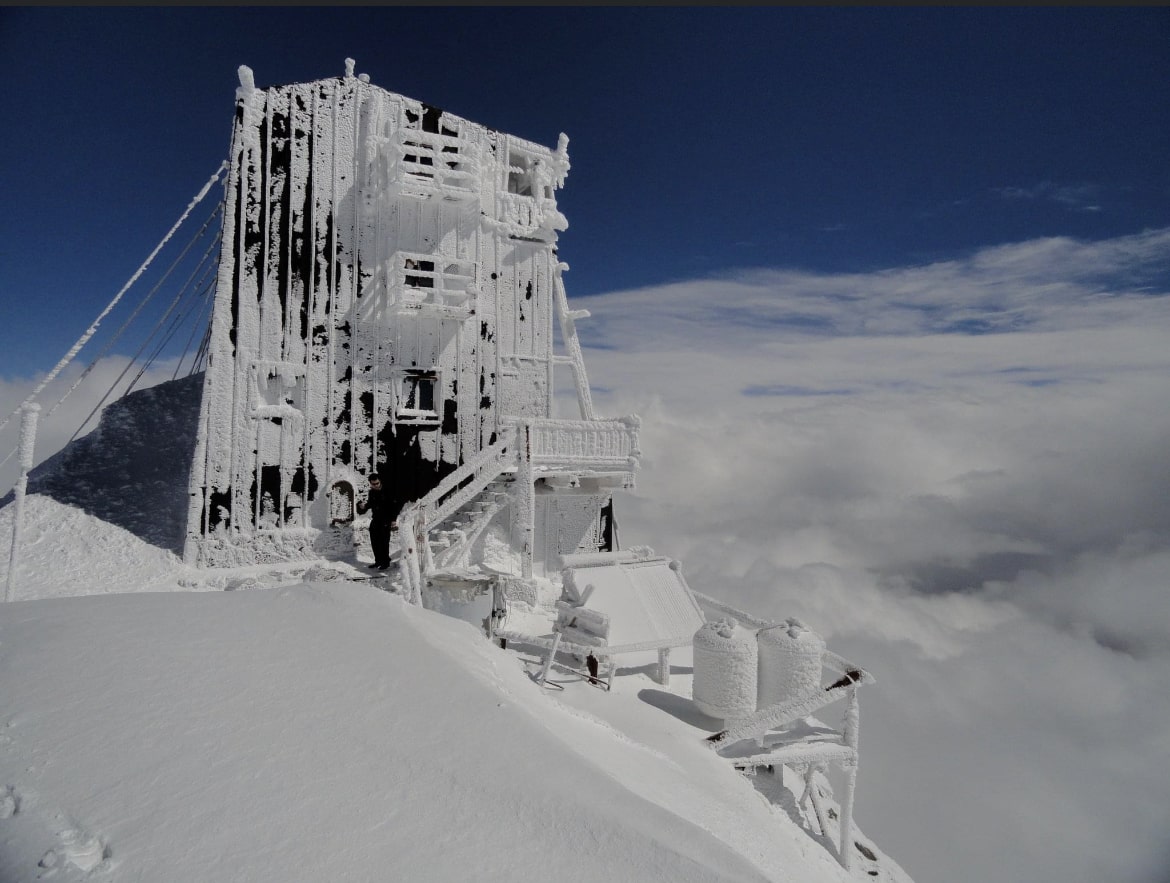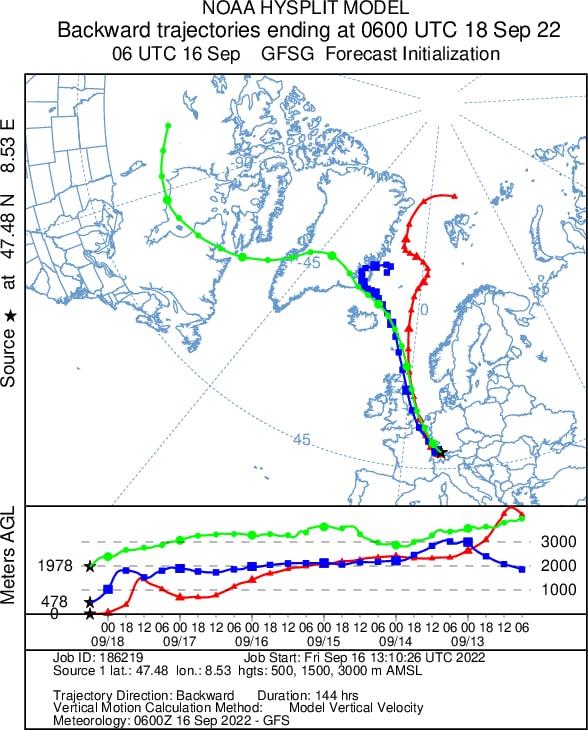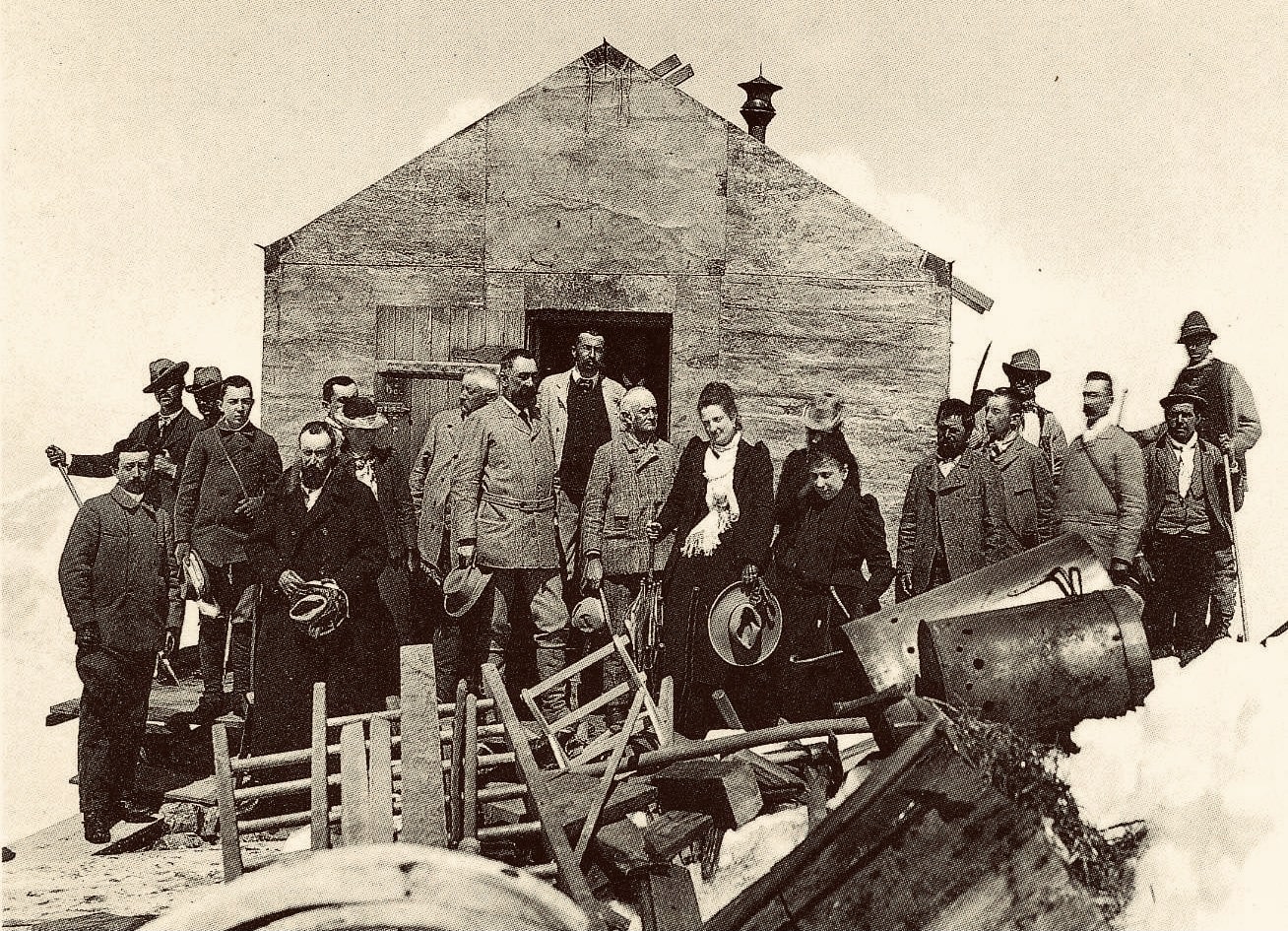
Two new records were broken at the weekend as temperatures at the weather station at Capanna Margherita in Monte Rosa, Italy, dropped to -6.2°F (-21.2°C) at 6 am on September 17. This breaks the previous coldest temperature measured for the day in 2013, which was -3.5°F (-19.7°C) on September 17, 2013. It also is the earliest temperatures have dropped below -4°F (-20°C) degrees in a season. The previous marker for breaking the -4°F (-20°C) barrier was set on September 24, 2004, a week later.

The following night temperatures dropped even lower to a minimum of -7.6°F (-22°C), which did not break any records but matched the previous monthly record for September, which was set on September 26, 2020. The lowest temperature ever registered at the Margherita Hut weather station was -40.5°F (41°C) in the winter of 1928–1929.
Tmin -21.2° C (-21.17° C) alle ore 6.00 GMT del 17/09/2022 pic.twitter.com/fSCaZOULuT
— ARPA Valle d'Aosta (@ArpaValledAosta) September 17, 2022
Europe experienced its first snowfall of the season at the weekend when temperatures plummeted. The sudden drop in temperatures across Europe was triggered by arctic winds blowing at nearly 90 mph, causing temperatures in Europe to drop below freezing point above 3,937-4,921ft (1,200-1,500m.) These are the first polar winds coming from the Arctic since April. Temperatures are expected to stay cold until Tuesday, after which they will rise again. The temperature measured at Capanna Margharita this morning at 6 am was quite a bit higher already at 7°F (-13.9°C).

The weather station at Capanna Margherita was opened in 1899 and has been a valuable source of information for more than a century. The Capanna Margherita is the highest building in Europe, situated at 14,941 ft (4,554m) on the Swiss-Italian border. The hut was first opened in August 1893 in the presence of Queen Margherita of Savoy of Italy, who had hiked up to the hut with her entourage and stayed the night in the hut, which was named in her honor.
Systematic record keeping of weather has only been around since the middle of the 19th century. Alpine regions have been particularly popular for weather stations as they are more helpful for forecasting weather patterns since weather elements like temperatures, wind speeds, and directions, air pressure, humidity, and precipitation have more meaningful values.
We hope there is an epic ski season in the forecast after such an early cold snap.

Grand Solar Minimum + Galactic Cosmic Rays and lower magnetosphere on Earth all contribute to fewer to zero sunspots, which contributes to less radiation streaming out to the entire heliosphere (Solar System) from our Sun, and the increase in Galactic Cosmic Rays, which contributes more atomic/molecular particles which flow into Earth’s atmosphere which ‘rays’ act as ‘nuclei’ for more rain drops and snowflakes = more rain and snow.
Also, the decrease in solar radiation has a tendency to cause the jet stream to “meander” instead of staying laminar which causes noticable changes in the ‘local’ temperature – lower temp when flowing south from the N.Pole and warmer when flowing northward from our equater.
Interesting that you don’t know about this.